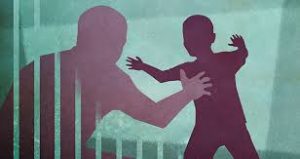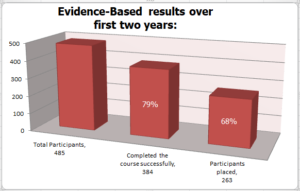
Being a non-profit working with young and old adults involved within the criminal justice system, we hear the term Trauma Informed Care more often than not. As a matter of fact, the term, especially when dealing with alternatives to incarceration, our criminal justice system, and effective reintegration, is in the limelight right now. According to those in the know:
Trauma Informed Care is an
organizational structure and treatment framework that involves
understanding, recognizing, and responding to the effects of all types
of trauma.
I remember growing up and how the word trauma was tagged (exclusively)
to a military setting. No doubt, heading off to war can (and often
will) directly affect the individual; of that there is little dispute.
Way back when, it was rare that anyone not directly involved with the
military was recognized as shouldering post-traumatic stress.
Unfortunately, family members left behind were often forgotten about
or brushed to the side when it came to trauma… out of sight… their voice
was rarely heard.
Jumping from childhood to well into adulthood, the consequence of
trauma has been expanded to those outside of the military to include
individuals indirectly involved in the incident or event. With
such an expansion recognized, recovery is being addressed in a more
effective manner… no more out of sight… their voice will be heard.
By today’s standards, traumatic experiences requiring care ranges
from the obvious to the not-so-obvious. When it comes to our vulnerable
youth and the effects of trauma, the world, neighborhood, and home can
create an ever-lasting impression on the heart, mind, and soul; without
proper care, these youth are at risk.
Beneath the trauma inducing umbrella are events such as:
Natural disaster
Death of a loved one
Being in a car accident
Child witnessing home abuse
Family member going to prison
Loud noises, gun shots being heard
Shootings and/or neighborhood fighting
Child being the victim of abuse, physical and/or emotional
The above is not all-inclusive but should give you an idea as to what we are dealing with.

On a personal level, the following happened years ago, which, if
handled incorrectly, could have changed the path of two very young boys:
When my two boys were just three and
four years of age, I purchased two living ducklings as an Easter present
(before you panic, we lived on a farm so this was normal activity). My
boys were in total awe at the new addition and insisted the ducks stayed
in the house. I allowed.
On the second night, the new addition
remained inside and in a cardboard box like the night before. After much
quacking and smelling of duck poop, around 4:00 am, I placed the
cardboard box outside, just within reach of the door. Unfortunately the
night was a bit too cold and the ducks did not make it.
My boys woke to the sound of silence
as they stepped out to an unexpected event. They both were very upset,
shed tears, and did not understand what had happened. That morning, I
sat the boys down and explained in a calm and empathetic way what had
happened. Over the next few days we had gentle and sensitive talks about
it and before long, all was fine.
Though insignificant in comparison, if handled without care and
empathy, the event could have made a rippling psychological scar of one
or both of my boys.
If a traumatic event happens to someone in your life, do know there
are general things one can do to minimize lifelong effects. In my
situation outlined above, I remained patient and understanding, allowing
deep and meaningful discussions (even though the boys were very young,
they deserved respect, a voice, warmth, and empathy).
Simply being there is the first step, as for second and third steps,
we’ll review what the experts in the field suggest in articles to come.
To help all of us progress, I welcome your stories to be added into our series.
If you chose to share, email me directly at dhuffman@2ndChanceUniversity.org.
Danny Huffman,
Founder and Journeyman
2nd Chance University

 Contact us at (407) 878-0474
Contact us at (407) 878-0474




 Thanks for being a great mentor !!!!
Thanks for being a great mentor !!!!